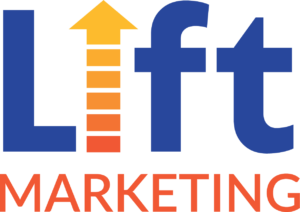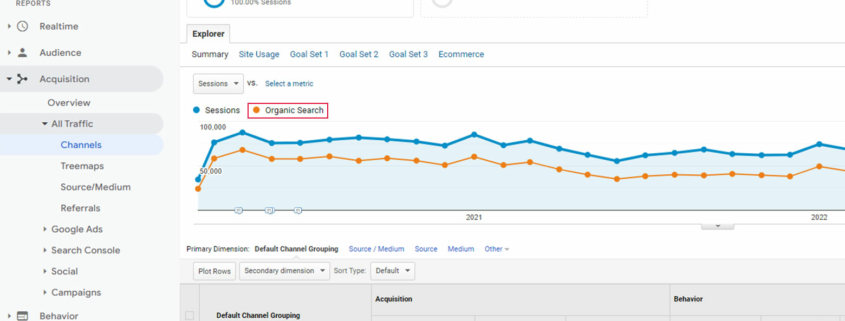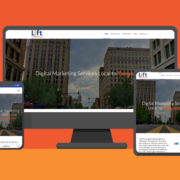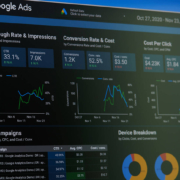Organic Traffic: What Is It and How Do You Get More Of It?
Whether you’re a seasoned website owner or a beginner, organic traffic should be at the top of your list for boosting sales. It’s simple; organic traffic means more potential customers hitting your web page.
Yes, organic website traffic really does matter and can have an incredible impact on success. But don’t worry if SEO strategy (search engine optimization) isn’t one of your strong points. (We can help you with that, too.)
Before we get down to the nitty-gritty, look at the different types of traffic: direct traffic, organic traffic, referral traffic, and SEO traffic. Learning how people find your website is the most important step in meeting your digital marketing goals.
What’s Organic Traffic?
Organic traffic tells you how many people found you from search engines (like Google or Bing). If you have a high ranking on the search results pages, you’re automatically going to have more organic traffic. Google Search Console gives you an in-depth look into the ranking factors determining your site’s placement.
Organic Traffic vs. Paid Search Traffic
There’s one big difference between organic traffic and paid search traffic: organic traffic is free, and paid traffic costs money. Paid traffic gives you more control compared to being subject to organic search results. Paid ads, also known as pay-per-click (PPC) marketing, allow you to increase your website traffic by paying for users to see you. A good digital marketing strategy looks at both paid and organic traffic.
Paid advertising can target your ideal customer base directly by placing ads in front of them on Google, Facebook, Twitter, LinkedIn, or other social media platforms. Organic SEO provides additional exposure through organic listings on Google Search Engine Results Pages (SERPs). You can also use content marketing strategies like blogging to increase the chance of appearing on the SERPS (and having a high ranking to boot).
Keywords and Organic Search Traffic
Organic traffic doesn’t stop. It’s 24/7. As long as your website is live, people can find it. That’s why you need to make sure your website is optimized and includes relevant content so Google can crawl it accurately. How do you do that? Keyword research, a.k.a. knowing what people are typing into search bars.
Content
Again, it’s not rocket science. Include popular keywords on your web page if you want
more organic traffic. Take this blog (content) for example. The topic is organic traffic, which is the main keyword. We then branched off and found other keywords that are associated with “organic traffic,” and we’re weaving them into this blog post (see if you can find them!). You probably searched “organic traffic” along with another keyword and that’s what led you here. That’s also an example of high-quality content, which you should have, too.
Tags
Use keywords in title tags, meta descriptions, and alt tags (image tags). These are the titles of every page on your site, as well as any other text that appears below an image on a search ranking. If you’re using WordPress, there are plugins available that allow you to easily add relevant keywords to these places without having to do any extra work! We love efficiency.
You’re the Strongest Link
Slapping links on your website helps build credibility, which the Google algorithm loves.
Backlinks
When someone includes your high-quality content on their page, that’s a backlink. Google crawlers eat them up. Reach out to other sites and ask them to link to yours if you want a high ranking.
Internal Links
Embedding links that lead to another page within your website. An example would be this.
External Links
These link to another website that backs up a statement or statistic on your website. External links help search engines, but they shouldn’t annoy the reader either. Make sure they add value to the ready and aren’t a nuisance because every other word is underlined.
Getting Your Analytics On
A lot of people don’t know that Google Analytics is a powerful tool. In fact, it’s one of the most important analytics tools in digital marketing today. This free tool collects data from your website, spitting measured metrics out into reports.
If you’re not using it to its full potential, then you’re missing out on valuable information that could help boost your organic traffic and improve conversions. What’s measured? A lot.
- Active users
- Audience (age, gender, location and so much more)
- Users
- Bounce rate
- Session and session duration
- Conversion rate
- Keywords and search volume
- Click-through rate (CTR)
- Traffic, including organic search traffic, social traffic, and paid search.
Use Social Media
You probably know this, but we’re going to talk about it anyway. Social media is a great way to reach new customers and promote your business. It’s also a strong way to increase brand awareness, customer engagement, sales, and leads (as long as you know what you’re doing on each social media platform).
Lift Marketing Is Your Go-To Agency
If you really want to get the most out of your website, leveraging the expertise of a team of marketing professionals couldn’t hurt.
At Lift Marketing, we have years of experience when it comes to taking advantage of the power behind organic traffic initiatives, so don’t hesitate to reach out if you’re looking for more help and support. Contact us now or anytime you need assistance with organic traffic optimization strategies!












